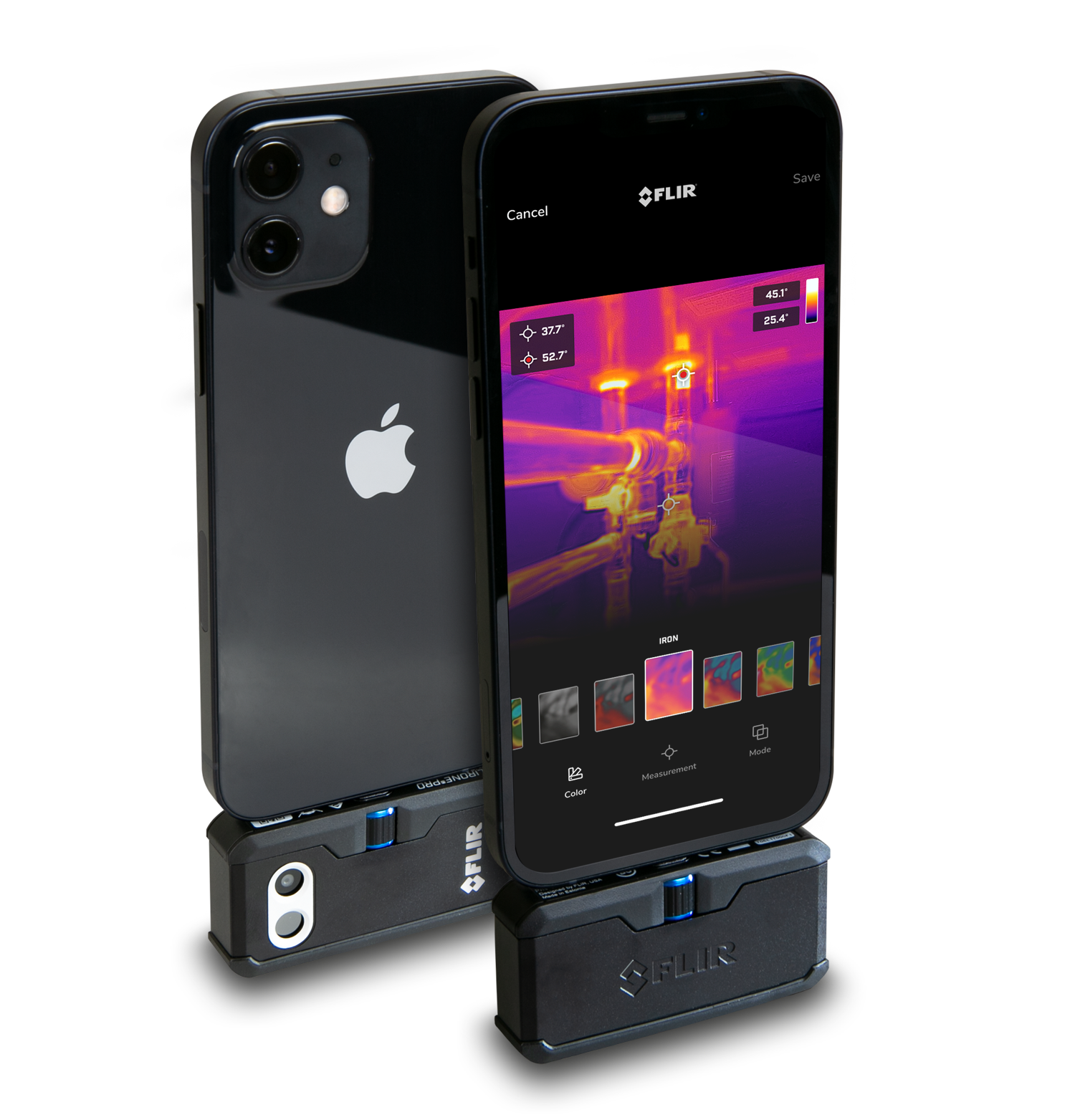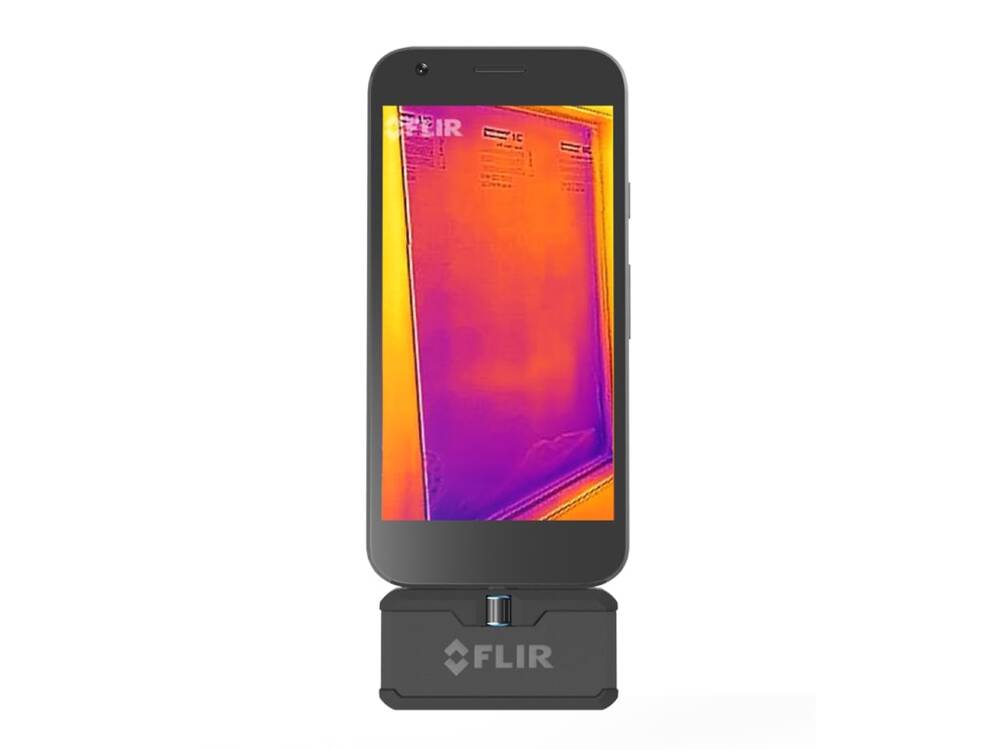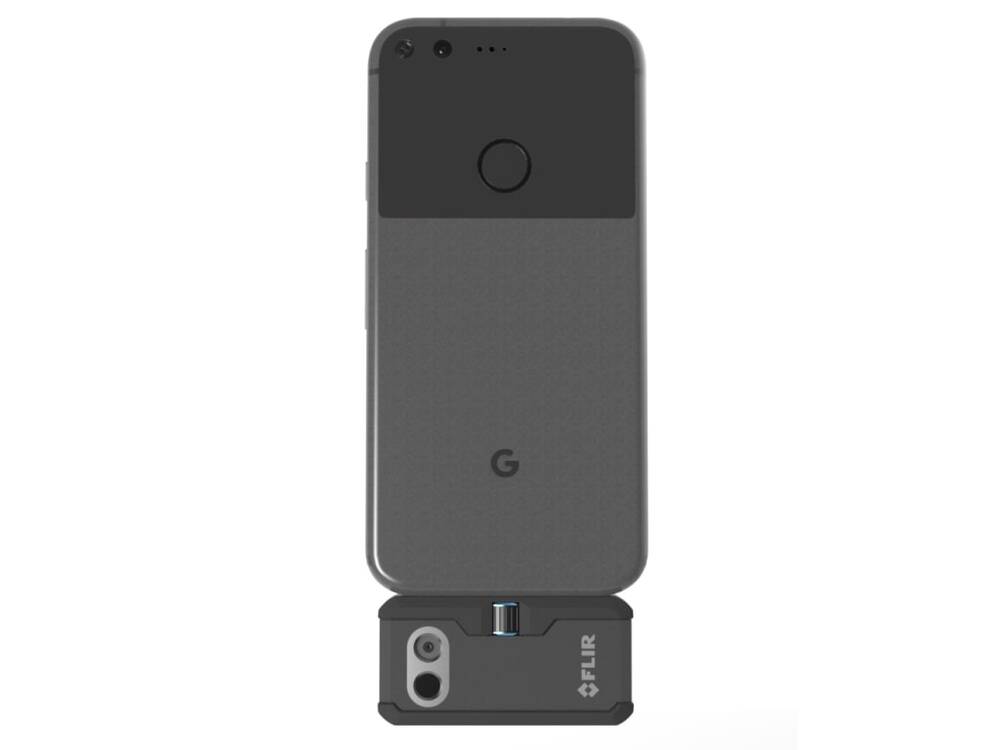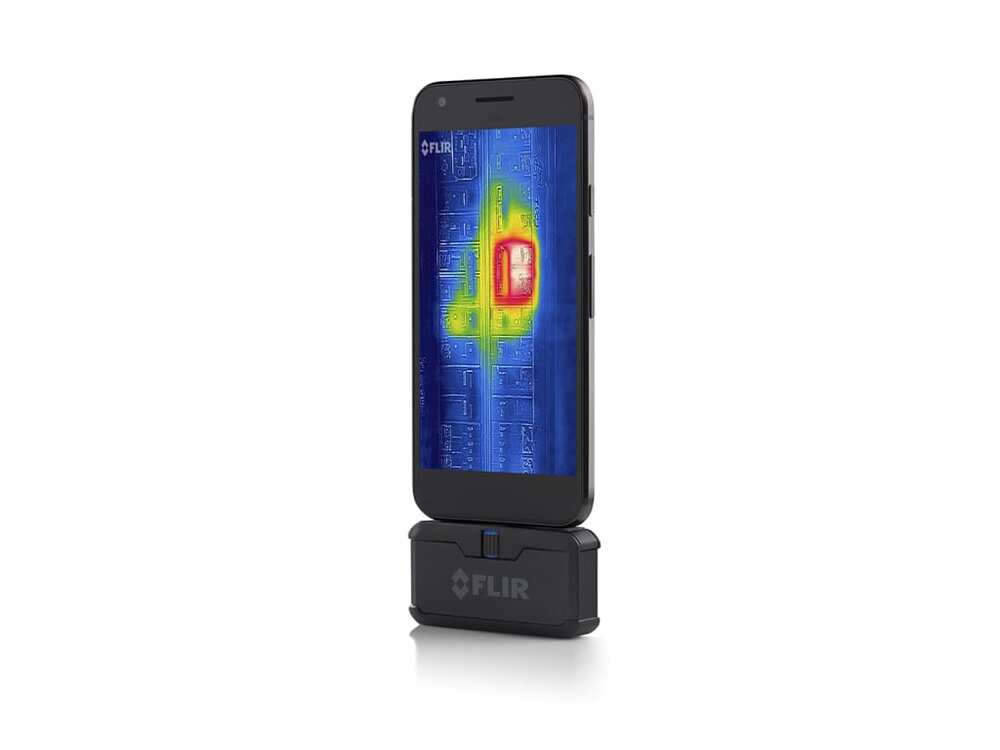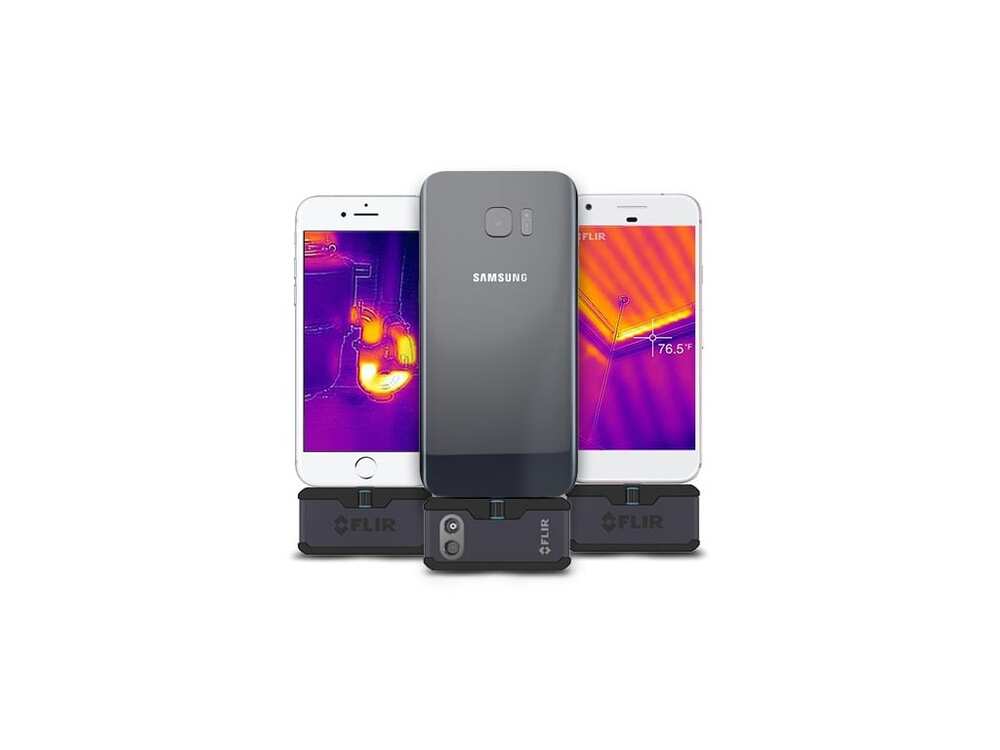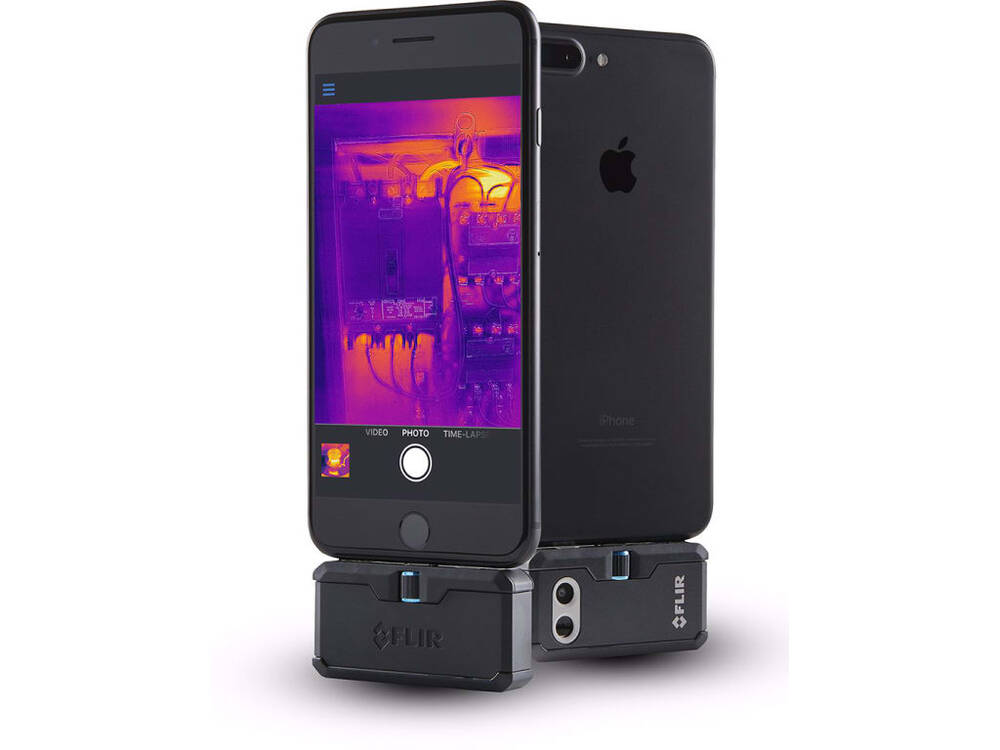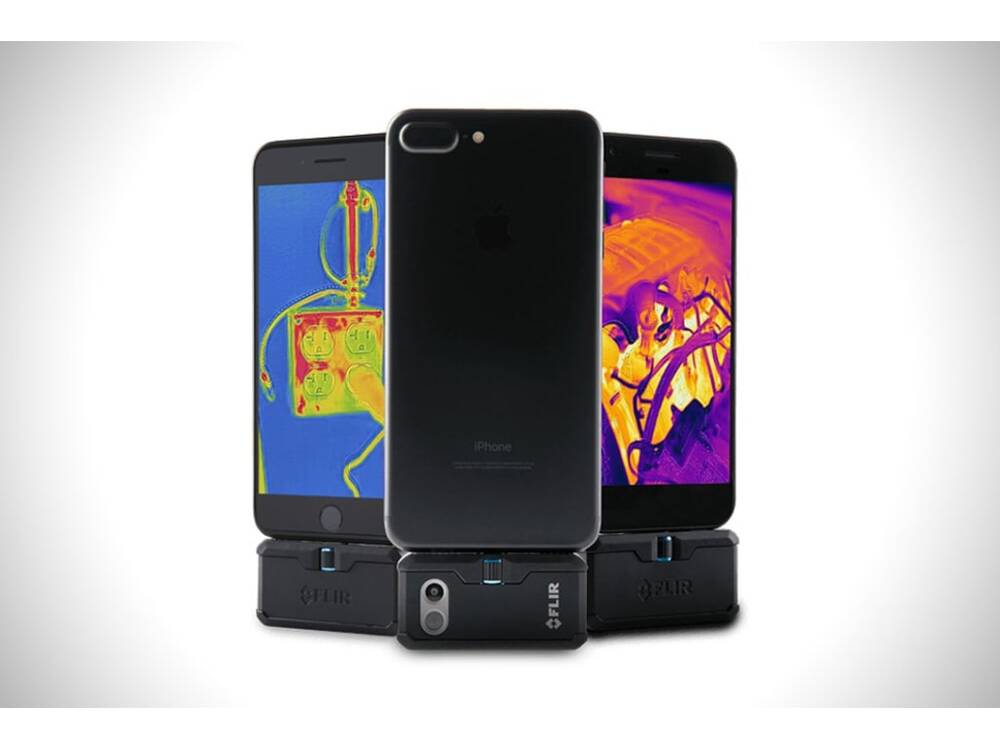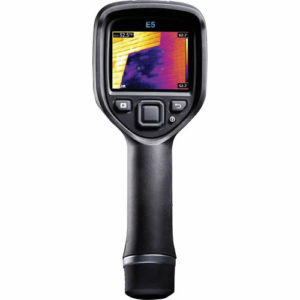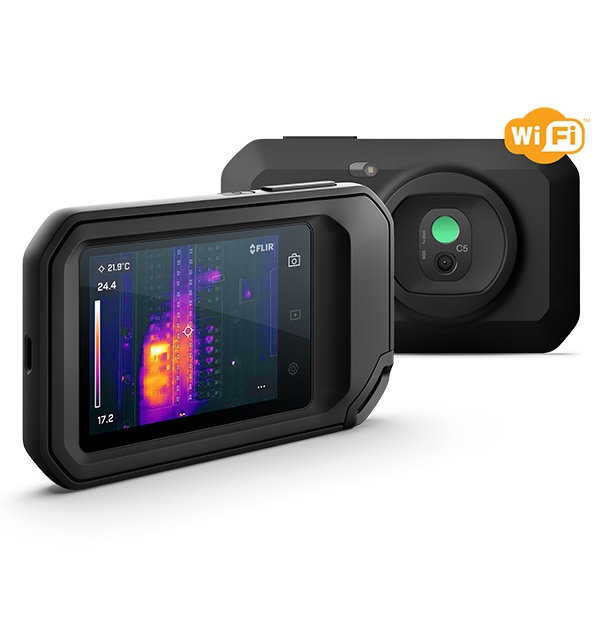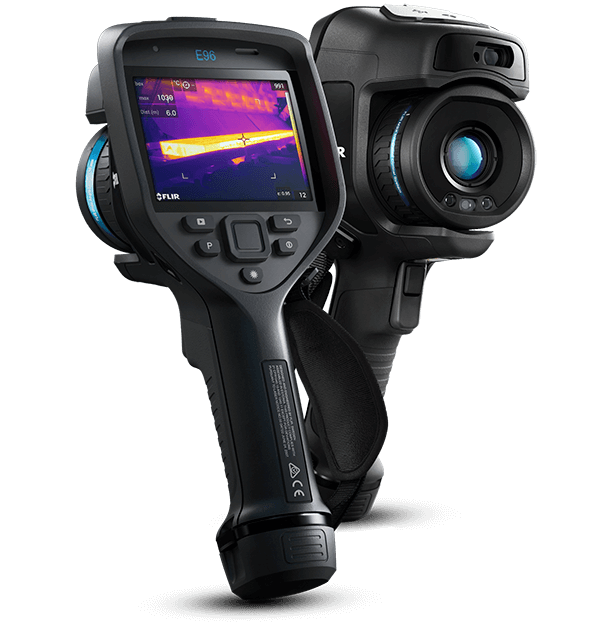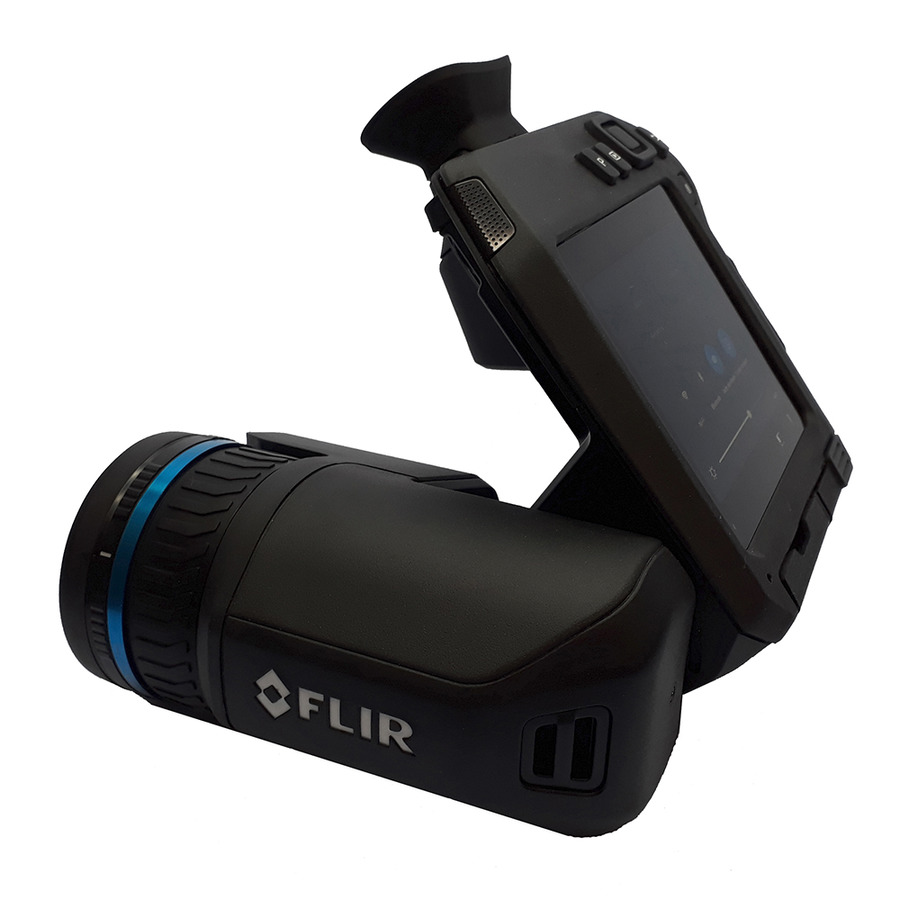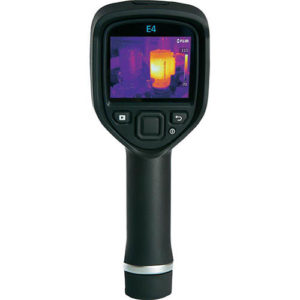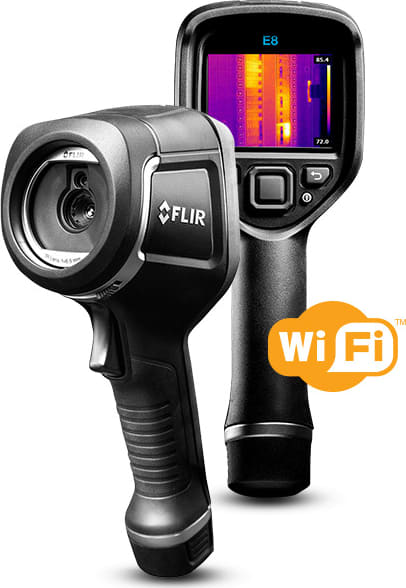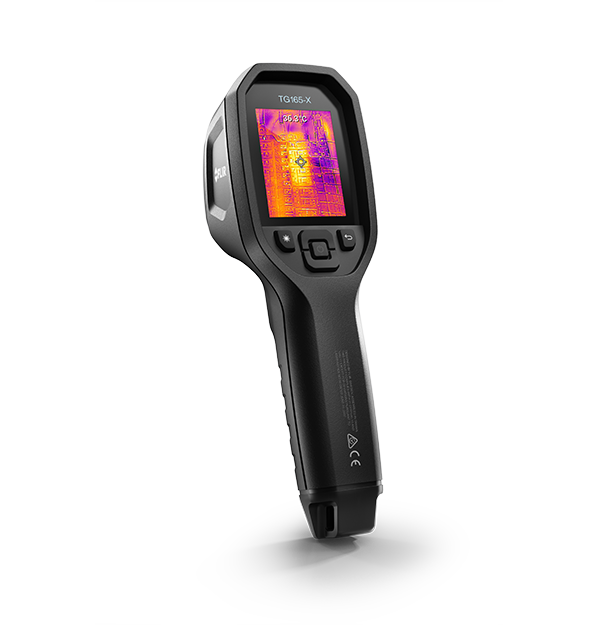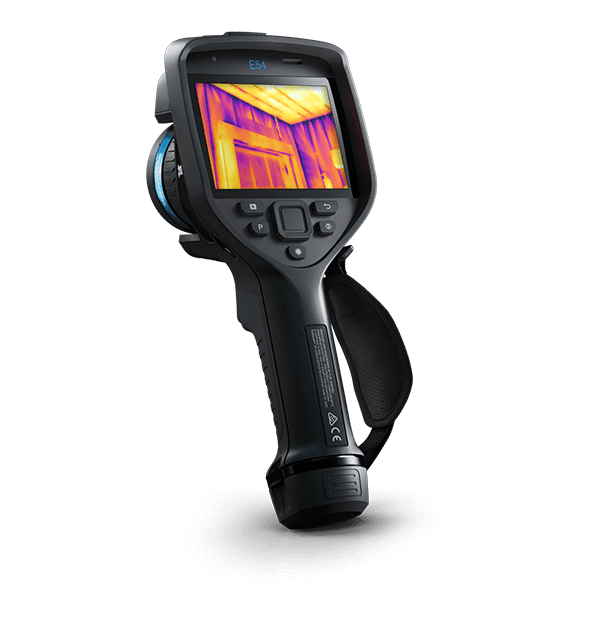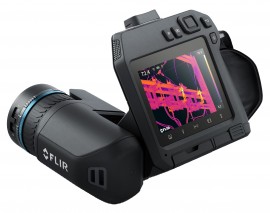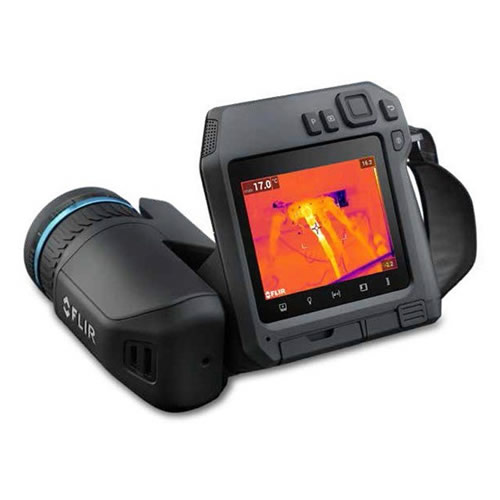Description
The FLIR ONE Pro helps you find invisible problems faster than ever, whether you’re inspecting electrical panels, troubleshooting mechanical systems, looking for HVAC problems, or finding water damage. This FLIR ONE Pro-Series camera offers 4x the native resolution of the FLIR ONE Pro LT, for sharper image clarity that’s further enhanced by the revolutionary FLIR VividIR™. Measure temperatures more than 3x higher than any FLIR ONE model—up to 400°C (752°F)—with a sensitivity that detects temperature differences down to 70 mK. Packed with powerful measurement tools, the FLIR ONE Pro will work as hard as you do.
IMAGE DETAIL & CLARITY
With its 19,200 pixel resolution—a 4x improvement over the FLIR ONE Pro LT—and VividIR™, FLIR ONE Pro gives you the ability to see more detail when it matters most.
EXPANDED MEASUREMENT
Measure temperatures between up to 400°C (752°F)—compared with a maximum of 120°C (248°F) for the FLIR ONE Pro LT—with up to three spot temperature meters and six temperature regions of interest.
JOBSITE TOUGH
Built to take the abuse that working on a jobsite dishes out every day, FLIR One Pro is rated to take a drop from 1.8 meters and is built to last.
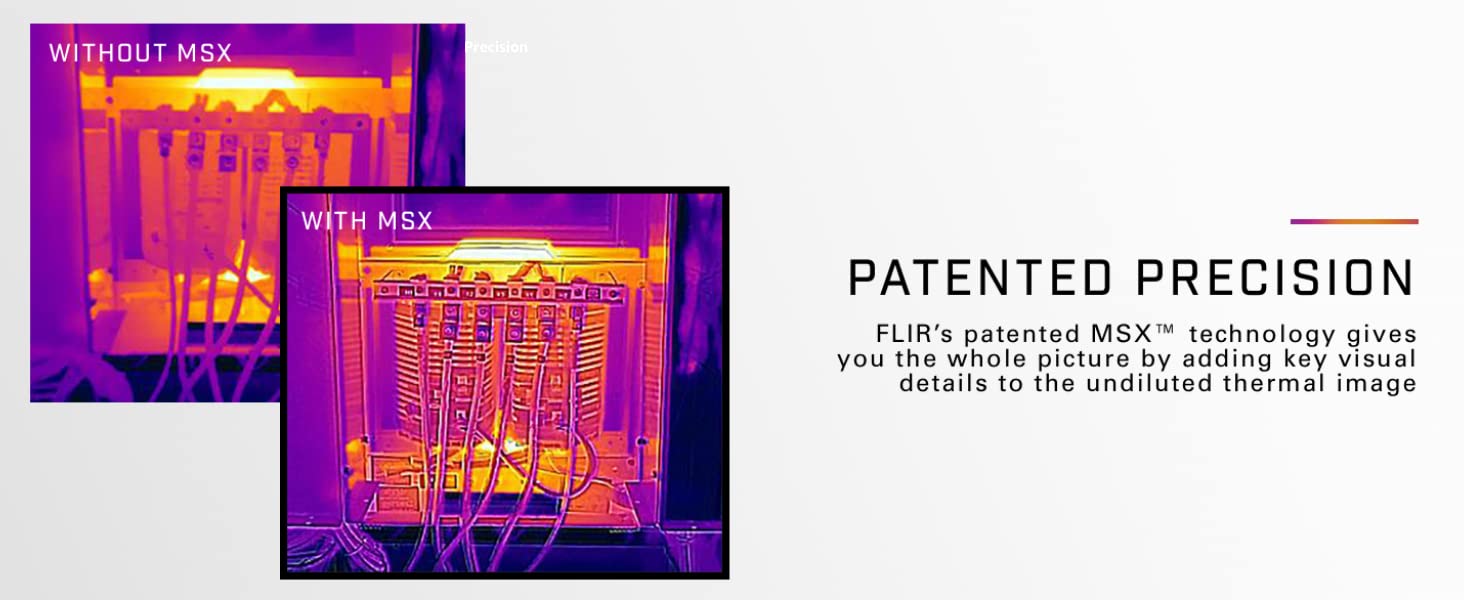
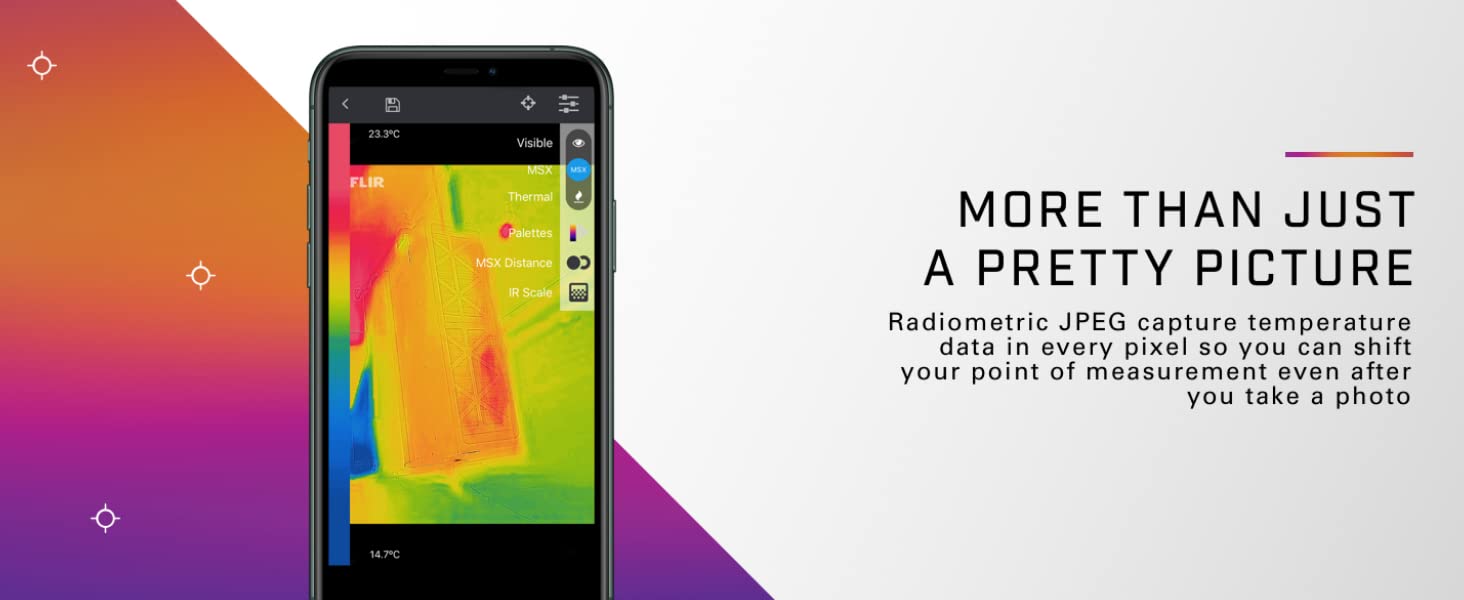
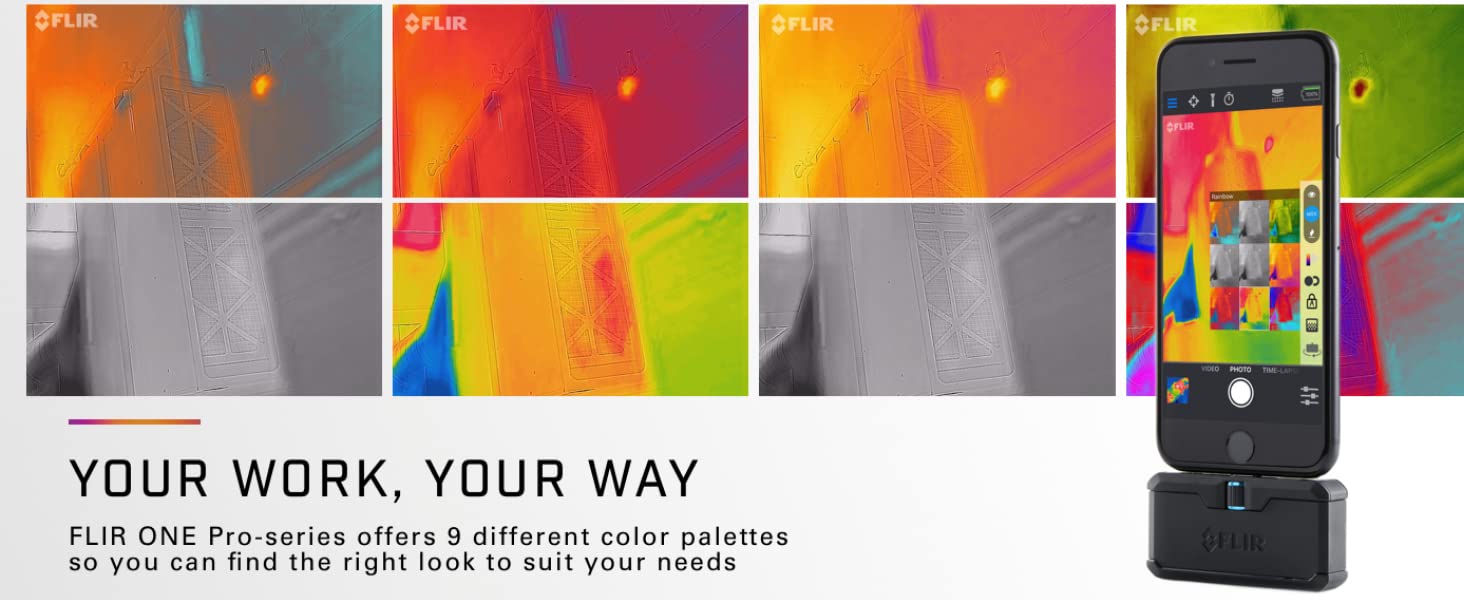
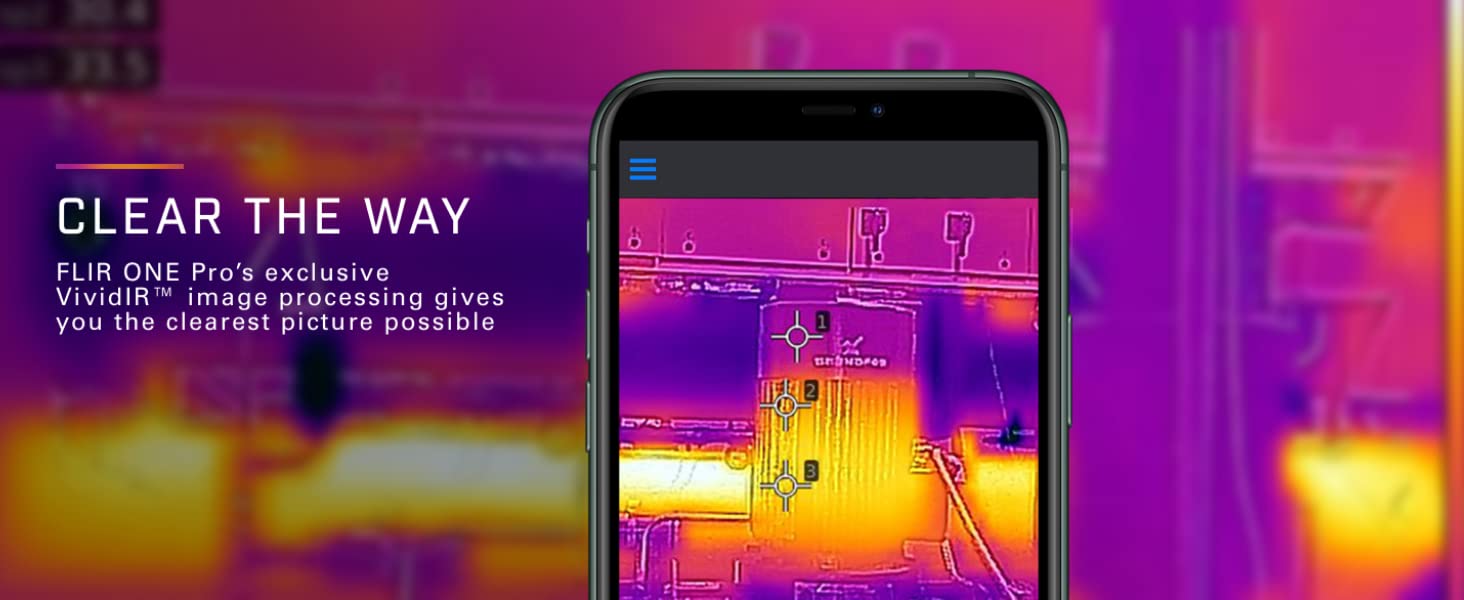
FLIR ONE Pro USB-C Specifications
- Thermal Resolution
- 160 × 120
- Battery Life
- Approximately 1 hr
- Object Temperature Range
- -20°C — 120°C (–4°F — 248°F) and 0°C — 400°C (32°F — 752°F)
- Phone
- Android (USB-C)
- Accuracy
- ±3°C or ±5%, typical Percent of the difference between ambient and scene temperature. Applicable 60 sec after start-up when the unit is within 15°C — 35°C and the scene is within 5°C — 120°C.
- Operating Temperature
- 0°C — 35°C (32°F — 95°F) , battery charging 0°C — 30°C (32°F — 86°F)
- Spot Meter
- Hottest, Coldest and 3 spot measurement
IMAGING & OPTICAL
- Adjustable MSX distance
- 0.3 m — Infinity
- FLIR Screen-EST Mode
- No
- Focus
- Fixed 15 cm — Infinity
- Frame Rate
- 8.7 Hz
- General Description
- Thermal and Visual Cameras with MSX
- HFOV/VFOV
- 50° ±1° / 43° ±1°
- Palette
- Gray (white hot), Hottest, Coldest, Iron, Contrast, Arctic, Lava and Color Wheel
- Shutter
- Automatic/Manual
- Thermal Resolution
- 160 × 120
- Thermal Sensitivity/NETD
- 70 mK
- Thermal Sensor
- Pixel size 12 µm, 8 — 14 µm spectral range
- Video and Still Image Display/Capture
- Saved as 1440 × 1080
- Visual Resolution
- 1440 × 1080
MEASUREMENT & ANALYSIS
- Accuracy
- ±3°C or ±5%, typical Percent of the difference between ambient and scene temperature. Applicable 60 sec after start-up when the unit is within 15°C — 35°C and the scene is within 5°C — 120°C.
- Object Temperature Range
- -20°C — 120°C (–4°F — 248°F) and 0°C — 400°C (32°F — 752°F)
- Spot Meter
- Hottest, Coldest and 3 spot measurement
COMMUNICATION & DATA STORAGE
- Capture modes
- Video, Still image
- Charging
- Female USB-C (5V/1A)
- File Formats
- Radiometric JPG, MPEG-4 (file format MOV)
- Video
- Male USB-C
POWER
- Battery charge time
- 40 min
- Battery Life
- Approximately 1 hr
ENVIRONMENTAL & CERTIFICATIONS
- Certifications
- MFi (iOS version), RoHS, CE/FCC, CEC-BC, EN61233
- Drop test
- Drop from 1.5m
- Emissivity Settings
- Matte: 95%, Semi-Matte: 80%, Semi-Glossy: 60%, Glossy: 30%
- Non-Operating Temperature
- -20°C — 60°C (-4°F — 140°F)
- Operating Temperature
- 0°C — 35°C (32°F — 95°F) , battery charging 0°C — 30°C (32°F — 86°F)
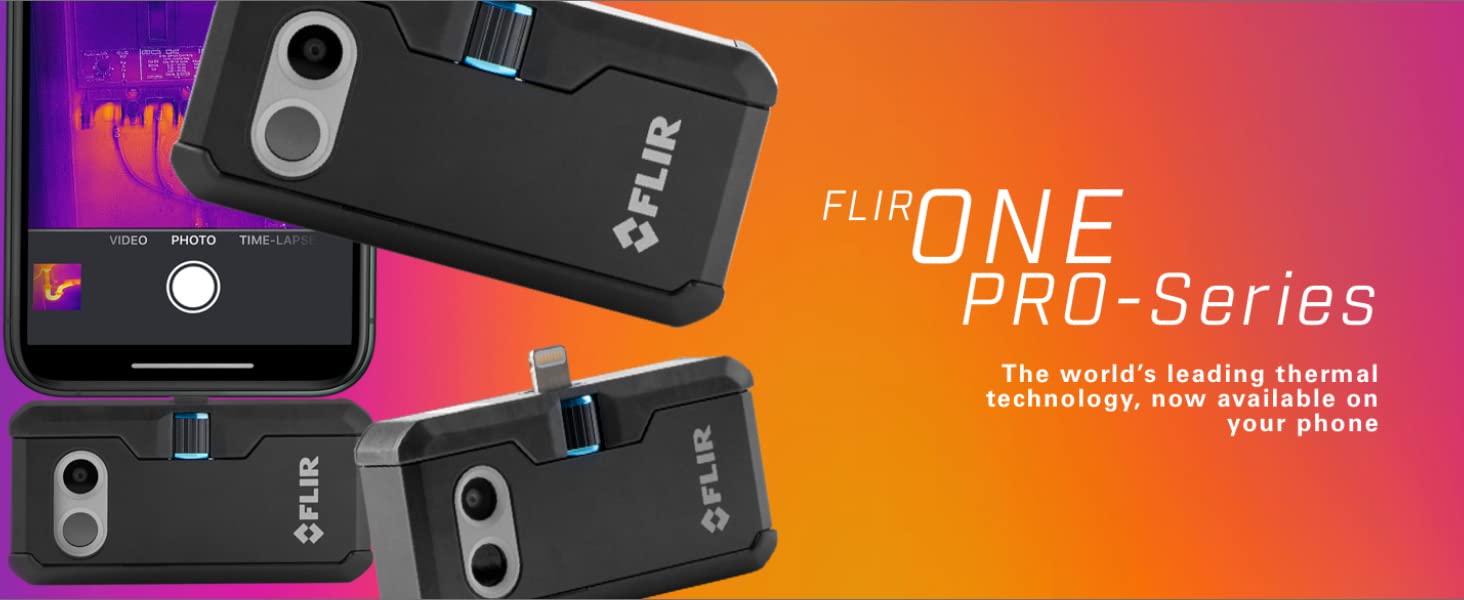
FLIR ONE Pro USB-C Camera Documents
FLIR ONE Pro USB-C FAQ
Most frequent questions and answers
Can FLIR cameras see through walls?
No, thermal cameras cannot see through walls, at least not like in the movies. If you point a thermal camera at a wall, it will detect heat from the wall , not what’s behind it.
What is the difference between FLIR and thermal?
FLIRs make pictures from heat, not visible light. … Thermal cameras detect more than just heat though; they detect tiny differences in heat – as small as 0.01°C – and display them as shades of grey or with different colors.
Infrared Solutions from InfraTec. The term FLIR stands for the abbreviation Forward Looking InfraRed. The abbreviation FLIR originated in the course of the further development of the infrared camera at the beginning of the 1960s.
What are FLIR cameras used for?
The term FLIR, which stands for “Forward Looking Infrared”, refers to the technology used to create an infrared image of a scene without having to “scan” the scene with a moving sensor, which is what was previously required. It is also the name of the largest manufacturer of thermal imaging cameras (FLIR Systems).

